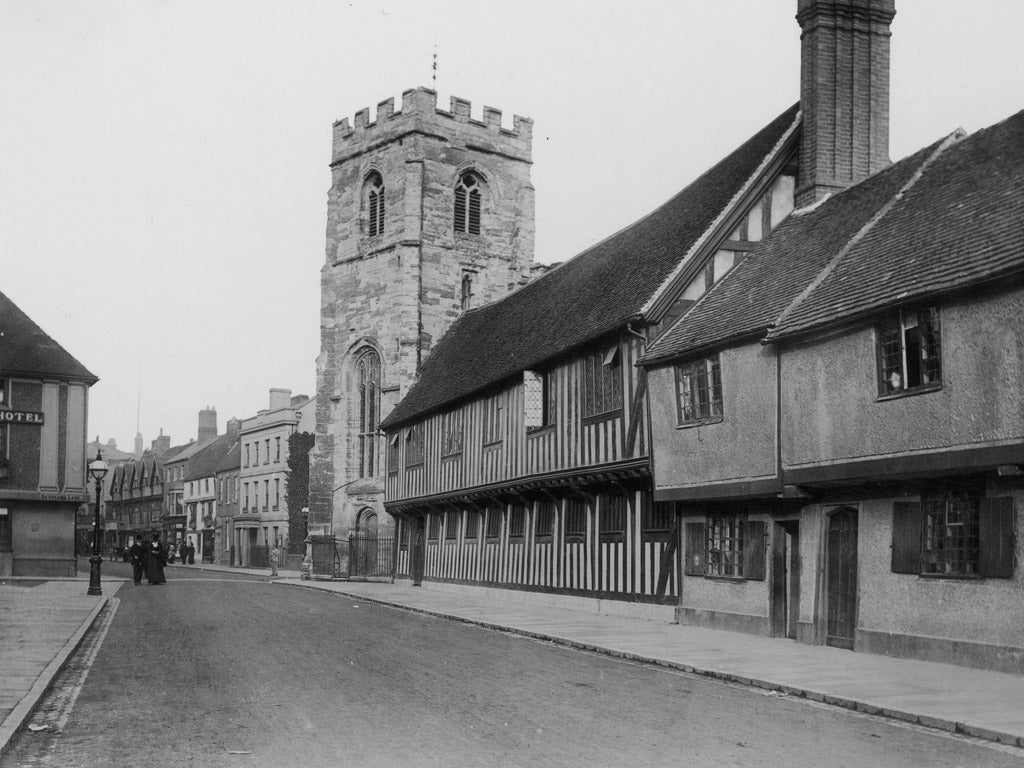End stagnation and create aspiration with free grammar schools
I did not go to Eton but to a free grammar school that operated along equivalent lines


When we were shown round Tiffin Girls School in Kingston, south-west London, our guide was a sixthformer who lived in Stockwell. To those who don't know London, that is a lengthy commute, involving different trains and buses.
After my daughter later succeeded in winning a place at the school, one of her friends was from Shepherd's Bush, a daily journey that also defies contemplation. Again, when the son of a friend sat the entrance exam for Tiffin Boys, his neighbour in the examination hall hailed from Kent - if he got in, the family was going to move.
For anyone familiar with any of our remaining 164 state grammar schools these tales are old hat. The fact is: parents will do anything they can to get their sons and daughters in. Private coaching? Absolutely, if they can afford it. Long daily trek? Certainly. Relocating the home? If needs be.
In Kingston, where I live, stories abound of the lengths and sacrifices people will make. There's one that does the rounds of the boy who flew over from India to do the Tiffin exam. If he was successful, his parents and siblings were going to sell up and emigrate to London.
It's easy to mock such behaviour as pushy parenting gone mad, as fathers and mothers who crave exam success for their children above everything else. There is, it is true, something objectionable about it. But dig a little deeper and it's apparent they are chasing something more.
Yes, of course, they're pursuing a bevy of excellent grades with the prospect of a good university on the end of them. But they're also seeking a self-confidence, an ability to make career choices, to get on in life that they believe is shut off to their children elsewhere.
Except in the private schools.
But they can't or won't pay for those, so they chase an elusive spot at a grammar school.
In his speech, the former Prime Minister Sir John Major said he was “outraged on behalf of the people abandoned when social mobility is lost.” The Prime Minister's response to Major's clear attack on the domination of public life by a private school elite was to say, “what counts is not where you come from but where you are going”.
For David Cameron, educated at Eton and Oxford, having a say in where that route takes him is a given. From birth he was always going to determine what he did - perhaps not the job of Prime Minister but one of a senior politician.
I've been similarly fortunate. I did not go to Eton but to a school that operated along equivalent lines, where the teachers wore gowns, we had a Latin option, and we regularly sent pupils to Oxbridge.
I went to a boys' grammar school, long since closed and turned into a comprehensive. For free, I had what amounted to a private education. We had all the trappings of a fee-paying school but without the fees.
My classmates came from all parts of the town, from all backgrounds. Pass the 11-plus and you were in, and on your way. It was a cruel system: failure, unless the child was fortunate enough to gain entry to the grammar school in the sixth form, could signal being consigned to the educational scrapheap.
That was the reason why, when my grammar school was abolished, I actually welcomed it. I had witnessed at first hand the pain the 11-plus caused, to my sister and others, how divisive and unfair it was.
Getting rid of elite schools like mine, so ending the tyranny of the 11-plus, appeared to be the answer. But the government did only half the job.
The grammars were axed because they were exclusive and the preserve of the affluent middle class (they were open to everyone but there's no denying the preponderance of children from the better-heeled areas). However, ministers allowed another type of school, equally exclusive and even more of a preserve of the affluent middle class to remain.
It's arguable, of course, whether the government has the power to terminate the independent schools. But while the fee-payers remained, there was always a need for institutions that could match them, that supplied their students with the same advantages and opportunities.
There never was any threat towards the fee-payers, but by removing the free selective grammars an imbalance was created. The successor comps could not step into that vacated space, and the private schools grew ever stronger and pulled away.
The result, as Major highlighted, has been a damning and shaming lack of mobility. It was a mistake to imagine the grammars were all about exams. Indeed, Major, who obtained just three O-levels at his south-west London grammar (now a comprehensive) and went on to become Prime Minister is proof of that.
He was able to rub shoulders with boys from Eton, Harrow and the like in the higher echelons of the Conservative Party precisely because he had been to a grammar school.
The other evening, three of us met for dinner in London's West End. One has his own, hugely successful computer consultancy. The other is very high-up in one of our giant pharma groups. And there was me.
We talked about our home town, the grammar school we all attended, our class mates and how well many of them had done, and how far we'd come. We were, we agreed, extremely fortunate. We'd been able to compete on level terms with people that had gone to famous, posh, private schools. It did not cross our minds that we were somehow inferior - neither, crucially, did it cross the minds of those who awarded our university places or employed us.
There was nothing wrong with scrapping grammar schools.
But it was wrong to allow the independent schools to continue. They should have shut both types of school or not at all. The feepayers are never going to disappear.
On that basis, the free grammar schools should be restored - otherwise, as Major rightly said, all we will be left with is a “Victorian divide between stagnation and aspiration”.
i@independent.co.uk
Join our commenting forum
Join thought-provoking conversations, follow other Independent readers and see their replies
Comments
Bookmark popover
Removed from bookmarks